It is a common misconception that dogs are carnivores. Indeed, they do require high-protein intake, but they are actually omnivores. As such, vegetables containing vitamins, minerals, and fiber should form a part of your German Shepherd’s diet.
Most high-quality dog foods contain all your German Shepherd needs for a balanced diet (consult a veterinarian and research the best brands), but many people are opting to provide their dogs with home-cooked foods.
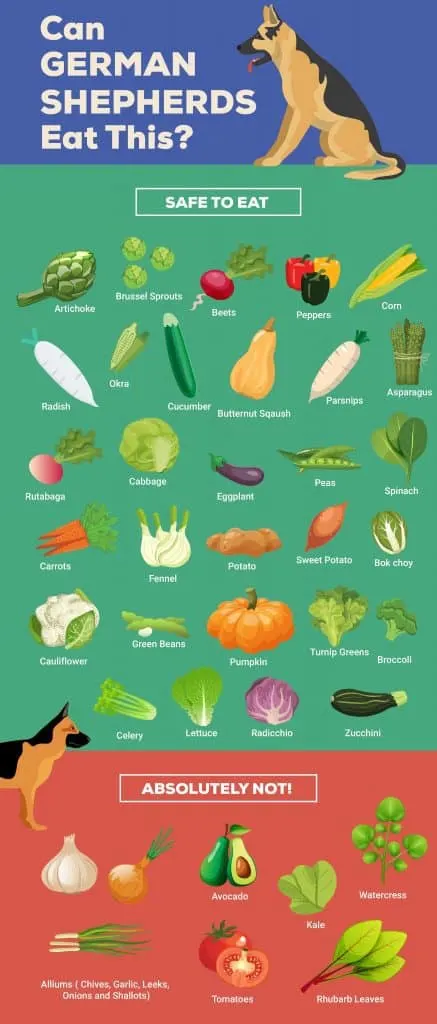
Be sure to interact with the table below – it can be expanded or toggled through for use as a quick reference guide to what vegetables a German Shepherd can and cannot safely eat.
Read on for more detailed descriptions and best feeding practices.
| Vegetables | Ok To Eat | Absolutely Not! |
|---|---|---|
| Artichoke | ||
| Asparagus | ||
| Alliums (Chives, Garlic, Leeks, Onions, and Shallots) | ||
| Avocado | ||
| Beets | ||
| Bell Peppers | ||
| Bok Choy | ||
| Broccoli | ||
| Brussel Sprouts | ||
| Butternut Squash | ||
| Cabbage | ||
| Carrots | ||
| Cauliflower | ||
| Celery | ||
| Corn | ||
| Cucumber | ||
| Chili Peppers | ||
| Eggplant | ||
| Fennel | ||
| Green Beans | ||
| Kale | ||
| Lettuce | ||
| Okra | ||
| Parsnips | ||
| Peas | ||
| Potato | ||
| Pumpkin | ||
| Radicchio | ||
| Radish | ||
| Rhubarb Leaves | ||
| Rutabaga | ||
| Spinach | ||
| Sweet Potato | ||
| Tomatoes | ||
| Turnips | ||
| Watercress | ||
| Zucchini |
A good rule for feeding vegetables to German Shepherds is moderation; don’t give them too much of anything. You should also vary the kinds of vegetables that you feed to your German Shepherd so that they get a good range of vitamins and fiber.
However, just because German Shepherds can eat certain vegetables, they cannot eat all of them, nor should they eat the same quantities that humans eat.
With some vegetables, one part such as the leaf may be fine for dogs, but another part such as the root may be poisonous. Additionally, some vegetables are better raw, and others are better cooked.
Click Here to Jump to a Section
Artichoke
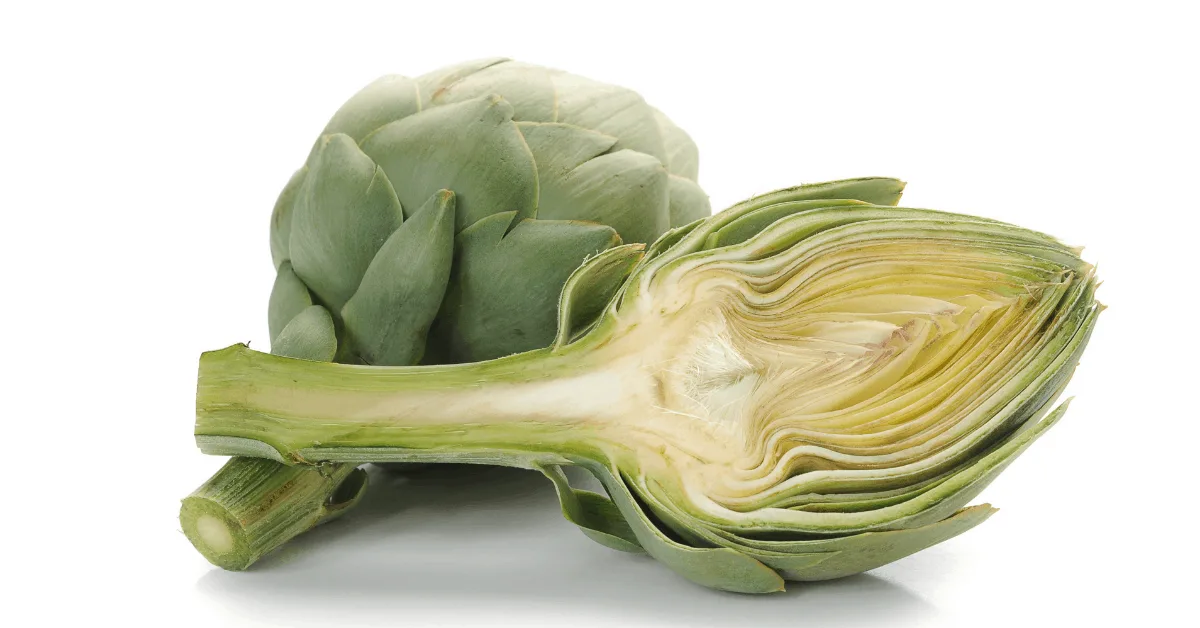
Artichokes belong to the Asteraceae family of vegetables. They provide your German Shepherd with antioxidants, fiber, folic acid, magnesium, niacin (vitamin B3), potassium, and vitamin C. They also have a low fat and sodium content.
Artichokes boost your German Shepherd’s immune system, muscle strength, and metabolism. They can also assist in settling irritable bowels.
You can feed them to your German Shepherd raw, thereby ensuring they get the maximum amount of nutrients from the artichokes but dice them up into bite-size pieces before giving them to your dog.
You can also roast them for your dog, but don’t add any seasoning or spices. Only give your German Shepherd small quantities of artichokes.
Asparagus
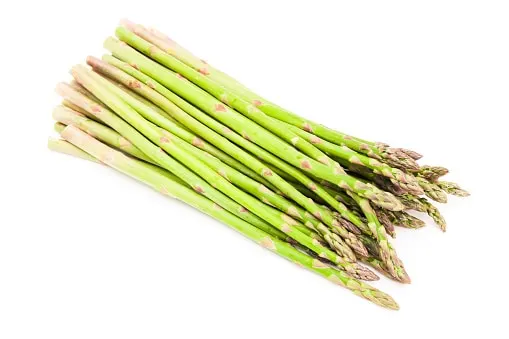
Asparagus belongs to the Asparagaceae family of vegetables. Asparagus contains large amounts of folic acid, potassium, thiamin, and vitamins A and B6, which are all very good for your German Shepherd.
Asparagus is also high in fiber, although this can make them difficult to chew and digest when eaten raw. In some cases, the raw asparagus stalks may be so difficult to chew that your German Shepherd tries to swallow them whole and may choke.
Because you have to cook asparagus for your German Shepherd to be able to eat it, you can lose some of the nutrients, and it may be more beneficial to give them other vegetables that they can eat raw. Additionally, as with humans, asparagus can give your German Shepherd’s urine an unpleasant odor.
Only feed your German Shepherd the tender stalk and tip of young asparagus. The asparagus fern is toxic to dogs, as are the small, red berries produced by flowering asparagus plants.
If your German Shepherd ingests the inedible parts or variation of the asparagus plant, it will cause nausea, vomiting, and intestinal pain.
Beets
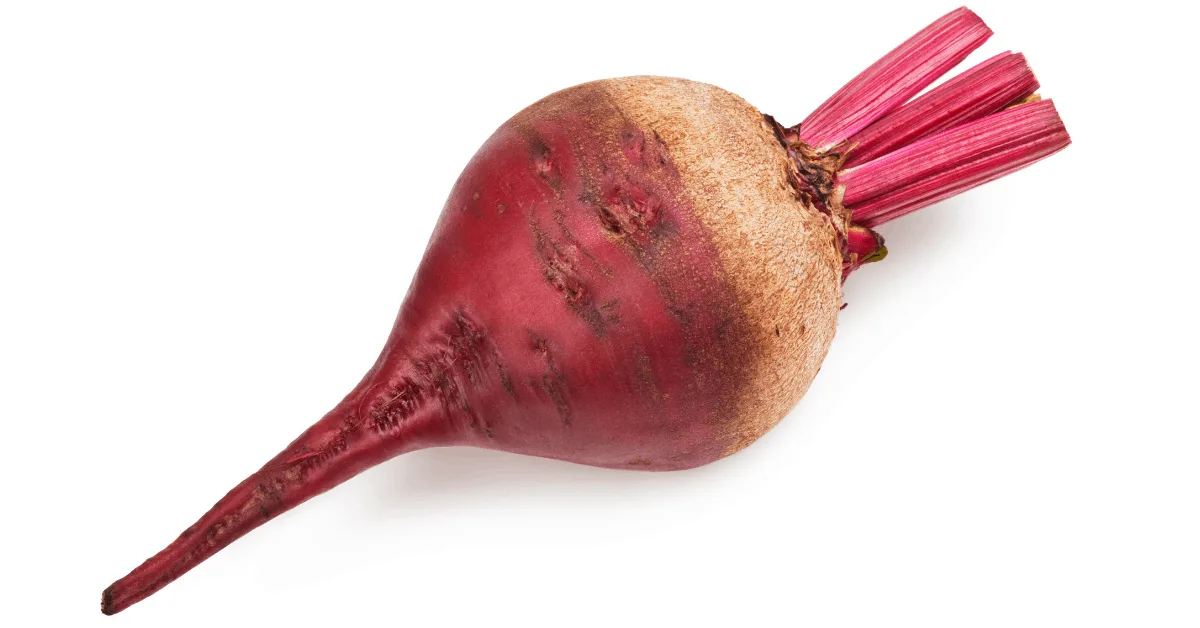
Beets, or beetroots as they are known in some parts of the world, belong to the Amaranthaceae family of vegetables. Beets contain iron, magnesium, manganese, potassium, and vitamin C.
These vitamins and minerals are all beneficial to your German Shepherd’s health, boosting the immune and nervous systems, strengthening muscles and bones, and promoting healthy renal function.
Furthermore, the iron content can be useful if your German Shepherd suffers from anemia. Beets are high in fiber and can aid in digestion, although too much will cause diarrhea.
Individual dogs can be allergic to beets, so make sure you introduce them slowly. Canned or pickled beets have high sodium content, and the preservatives used in them can cause damage to your German Shepherd’s kidneys.
Beets and beet greens contain calcium oxalate, which can be harmful to German Shepherds who suffer from kidney disease or are prone to developing bladder stones.
Beets should be served raw (try shredding them over your German Shepherd’s food) or cooked without seasonings. Beets are acidic and starchy, so feed them to your German Shepherd in moderation.
Bell Peppers
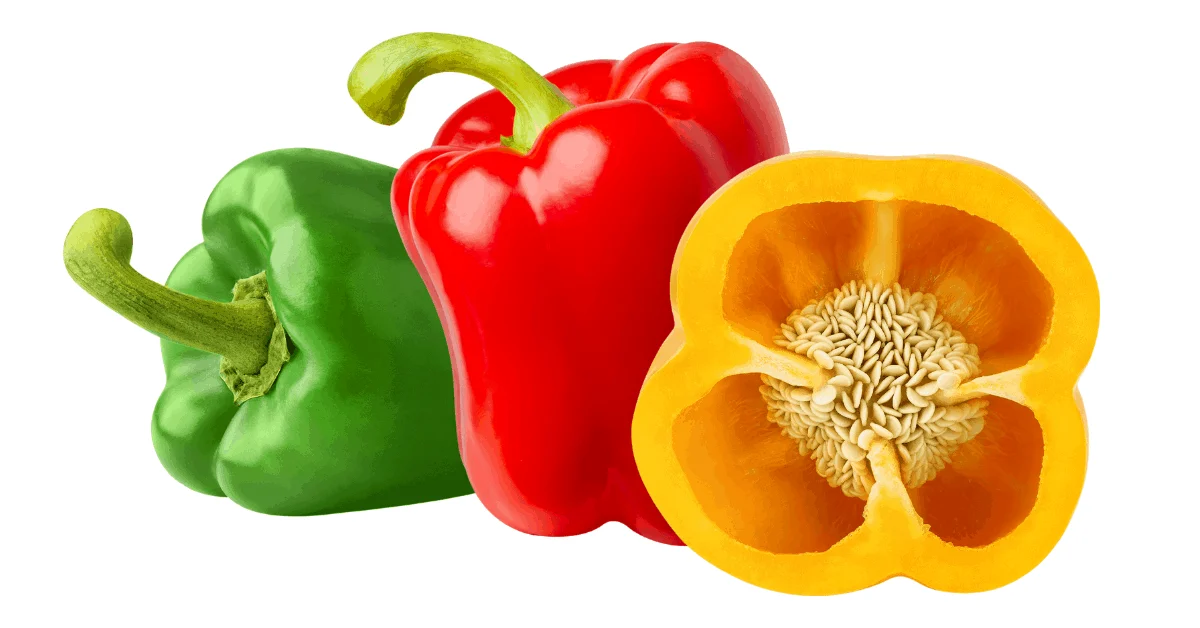
Bell peppers belong to the Solanaceae family of vegetables. They come in three main colors: red, yellow, and green. Of these, the red bell peppers contain the most vitamins and antioxidants. Bell peppers contain vitamins A, B6, C, and E, and are good for your German Shepherd’s immune system, coat, skin, and eyes.
Some individual dogs are sensitive or even allergic to these vegetables, so make sure you speak to your veterinarian before adding them to your German Shepherd’s diet.
If you add them, introduce them slowly and only ever feed them to your German Shepherd in small quantities. Remove the seeds and cook the bell peppers to increase their digestibility.
Other peppers can be harmful to your German Shepherd, particularly the spicier varieties.
Bok Choy
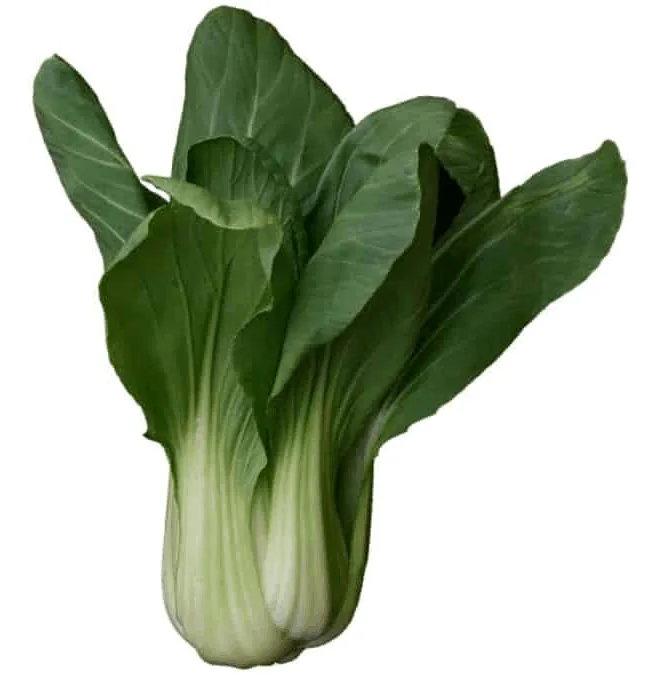
Bok choy belongs to the Brassicaceae family of vegetables and is also known as Chinese cabbage. It contains antioxidants, fiber, magnesium, phosphorous, and vitamins A, C, and K.
Bok choy can assist in promoting healthy immune, digestive, skeletal, and cardiovascular systems in your German Shepherd.
Puppies can have trouble digesting bok choy as their digestive systems are still developing. As with all high-fiber foods, too much can lead cause diarrhea.
Only feed the green parts of the leaves to your German Shepherd, and make sure you cut the leaves up small to prevent choking.
Broccoli
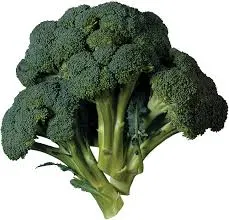
Broccoli belongs to the Brassicaceae family of vegetables. They are low-fat, high-fiber vegetables and also contain vitamin C.
You can give your German Shepherd raw or cooked broccoli, but only in very small amounts. The individual broccoli florets contain chemicals called isothiocyanates. These can be toxic to your German Shepherd in high doses, causing gastric irritation (mostly manifesting as abdominal pain and flatulence).
Additionally, the uncooked stalks of broccoli are choking hazards for German Shepherds, so make sure you cut it up into small pieces.
Brussel Sprouts
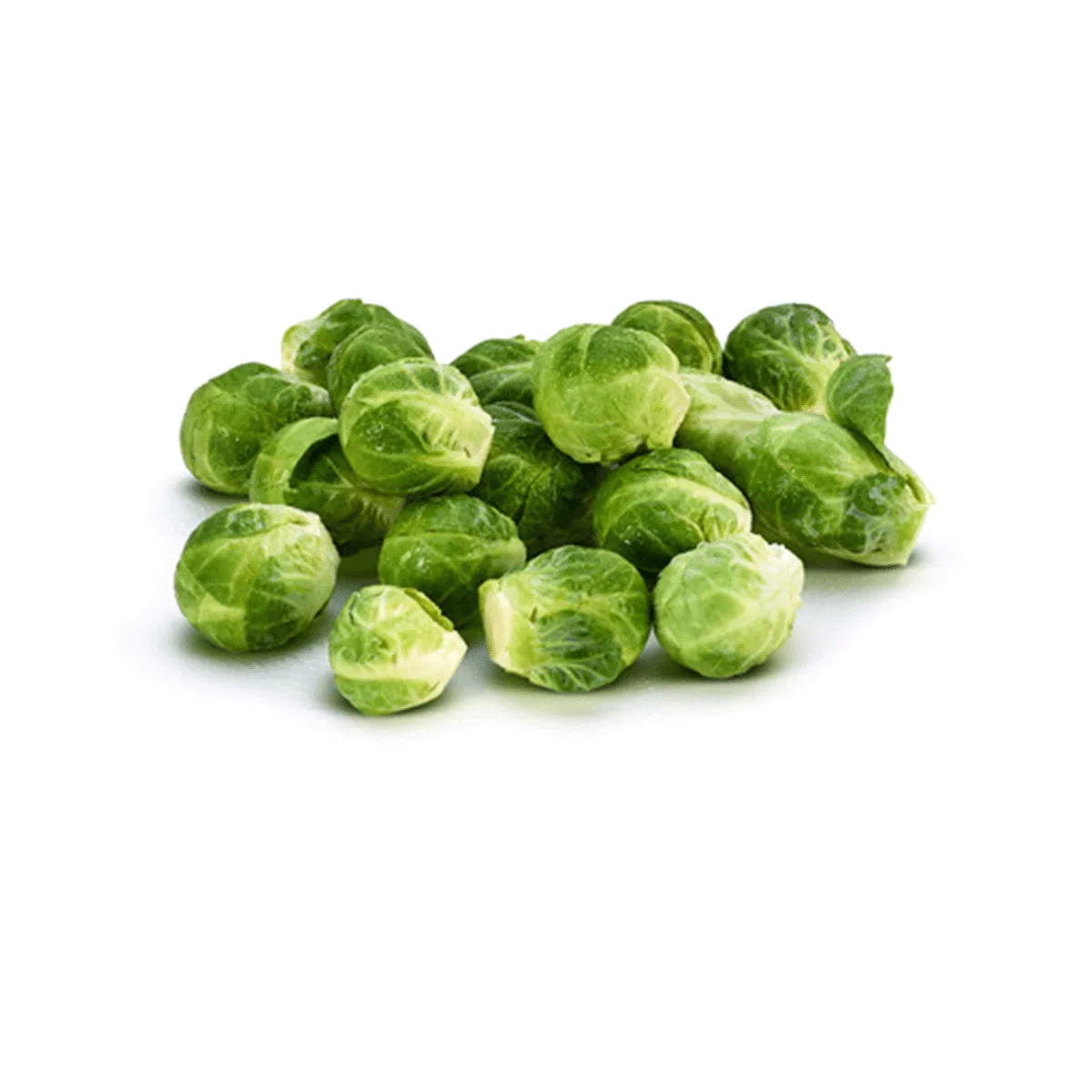
Brussel sprouts belong to the Brassicaceae family of vegetables. Brussel sprouts are full of vitamins, fiber, and antioxidants that promote cardiovascular health (including clotting) and bone strength in German Shepherds. They are also anti-inflammatory and protect against free radicals.
However, like broccoli, Brussel sprouts contain isothiocyanates, and large quantities will cause gastric irritation, including bloating, abdominal pain, and excessive flatulence.
Brussel sprouts should be steamed or boiled before they are fed to your German Shepherd. They are too difficult to eat raw.
Butternut Squash
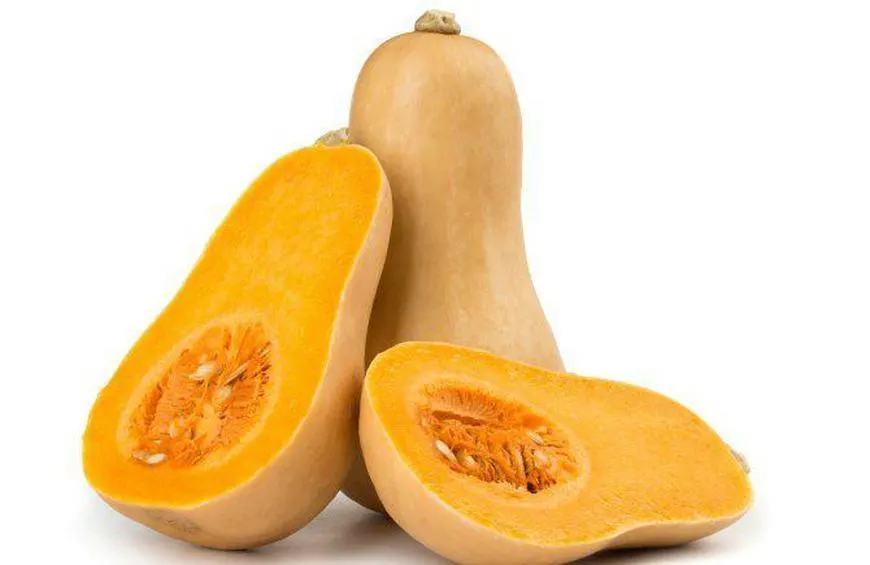
Butternut squash belongs to the Cucurbitaceae family and is technically a fruit, although they are used as vegetables. These squashes are great for your German Shepherd. They are low-calory, high-fiber vegetables containing beta carotene and vitamin A, vitamins C and K, and potassium.
Butternut squash is beneficial to your German Shepherd’s overall health, but it is particularly beneficial to their eyes and immune system. If your dog has an upset stomach, butternut squash is a good food to feed them.
You should remove the seeds and tough rind of the butternut squash and cook the fleshy part without fats or seasoning, so your German Shepherd can easily digest it.
Cabbage
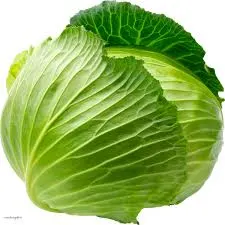
Cabbage belongs to the Brassicaceae family of vegetables. It is full of vitamins C and K, which boost the immune system and help combat diseases in your German Shepherd. The high-fiber content of cabbages also aids in digestion, but too much can cause diarrhea. Cabbage has also been known to improve skin health.
You should only give your German Shepherd cooked cabbage; raw cabbage is too difficult for them to digest. Cabbage should also only be fed to German Shepherds in small quantities.
They contain the same chemical found in broccoli and Brussel sprouts, which causes gastric irritation when consumed at high doses.
Carrots
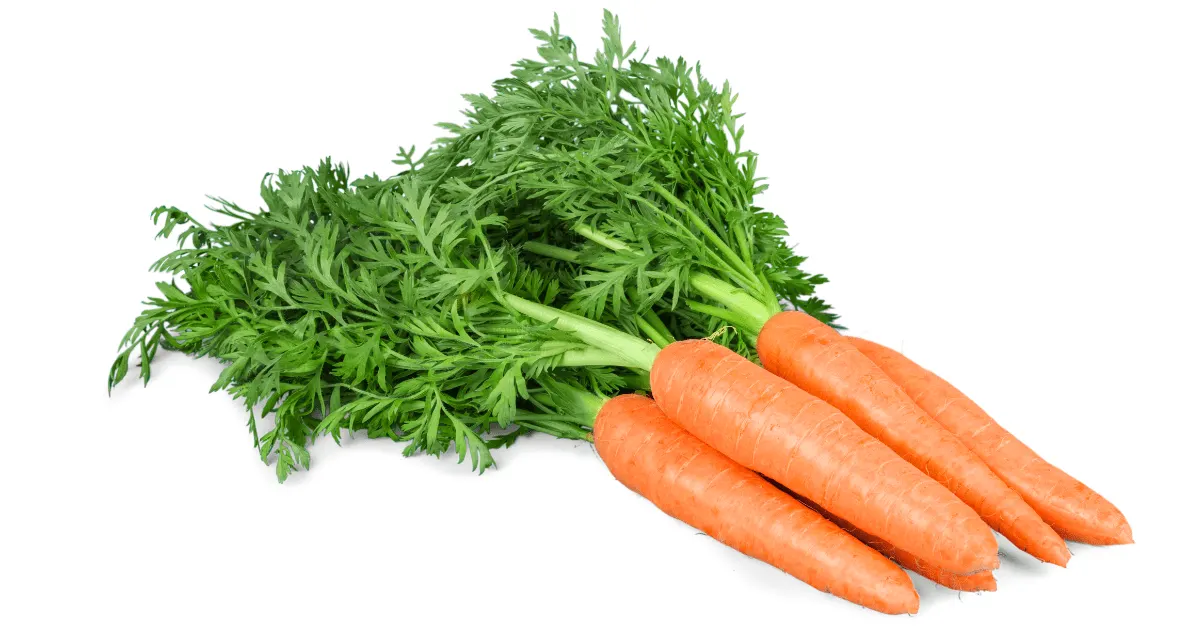
Carrots belong to the Umbelliferae family of vegetables. They contain folate, manganese, pantothenic acid, potassium, and vitamins A, C, and K. Carrots have a low calory count, but they are a good fiber source. Only give your German Shepherd small quantities of carrots.
Folate is involved in producing red blood cells and is very beneficial if your German Shepherd is pregnant. Manganese, which is not found in meat, is used for energy production and maintenance of bone and joint health.
Pantothenic acid is involved in supporting the metabolism. Vitamin A is good for your German Shepherd’s eye health, vitamin C boosts their immune system, and vitamin K helps regulate blood clotting and bone health.
You can steam the carrots (no seasoning) to make them easier to eat and more digestible, but raw carrots are not bad for your German Shepherd. In fact, the crunchiness of raw carrots can be enjoyable for your German Shepherd and can also assist in their dental hygiene.
Cauliflower
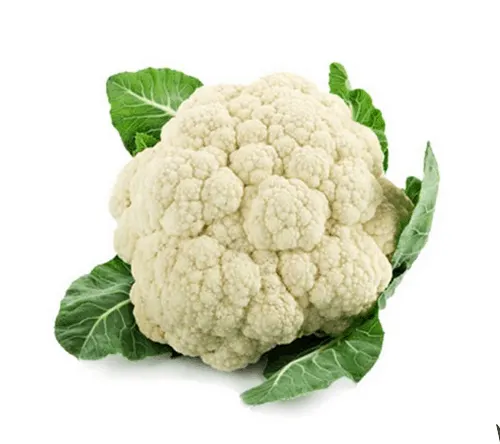
Cauliflower belongs to the Brassicaceae family of vegetables. It is a healthy source of calcium, fiber, folate, potassium, and vitamins K and C. All these vitamins and minerals support your German Shepherd’s vision, immune system, blood health, and muscles. Cauliflower is also anti-inflammatory and may be beneficial in the treatment of cancer.
You should cook cauliflower before giving it to your German Shepherd, and only give it in small quantities to prevent your dog from getting gas; this will be unpleasant for you and your German Shepherd.
Celery
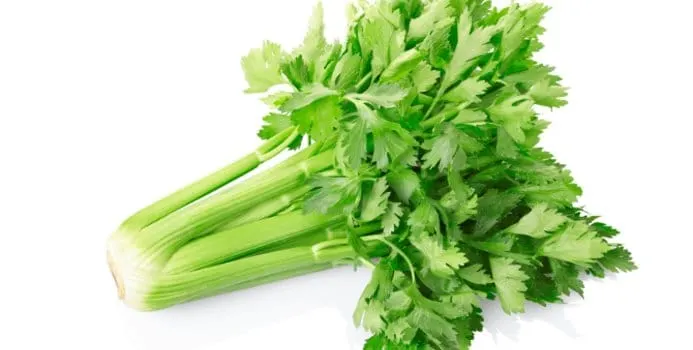
Celery belongs to the Umbelliferae family of vegetables. Celery is a low-fat, low-cholesterol vegetable. It is a great source of fiber, folate, manganese, potassium, and vitamins A, C, and K. Celery supports the digestive, immune, and renal systems of a German Shepherd and can benefit a pregnant female.
The low-calory nature of celery makes it an ideal treat for German Shepherds who are on a weight-loss diet, and it can be used as a breath-freshener for your dog as well.
You can give your German Shepherd raw celery, but you should cut it into small pieces to prevent choking.
Corn
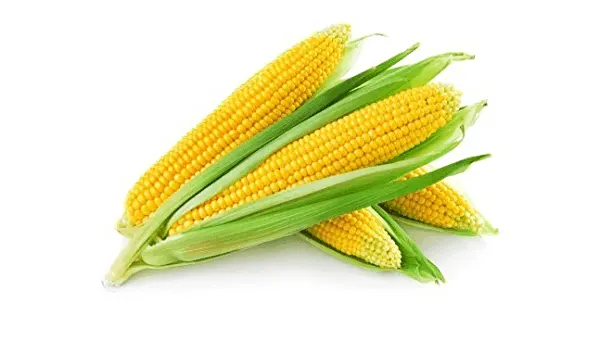
Corn belongs to the Poaceae family of vegetables. Corn is a great source of vitamins, minerals, fiber, carbohydrates, and even protein. Corn is actually a common source of grains in dog foods.
German Shepherds that are on a weight-loss diet should not be given corn. German Shepherds who have a grain intolerance or are prone to bloating should also not be given corn.
You can serve your German Shepherd cooked corn off the cob. While the corn is fine in small quantities, the cob cannot be digested by German Shepherds, and it can also pose a risk of choking. Canned corn is not a good option.
Cucumber
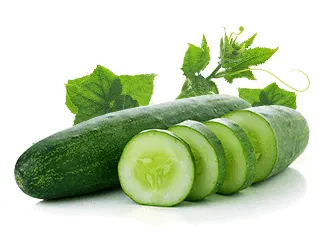
Cucumbers belong to the Cucurbitaceae family and are technically fruits. However, we have included them in this list because few people know them to be fruits, and they are used as vegetables.
Cucumbers contain biotin, calcium, magnesium, potassium, and lots of vitamins B1, C, and K. They are great for strengthening your German Shepherd’s bones and joints. Their high water content means they are also very hydrating, and if you feed some to your German Shepherd straight from the refrigerator, cucumbers become a cooling, summer snack.
You can feed cucumbers to your German Shepherd raw and with the skin and seeds.
Eggplant
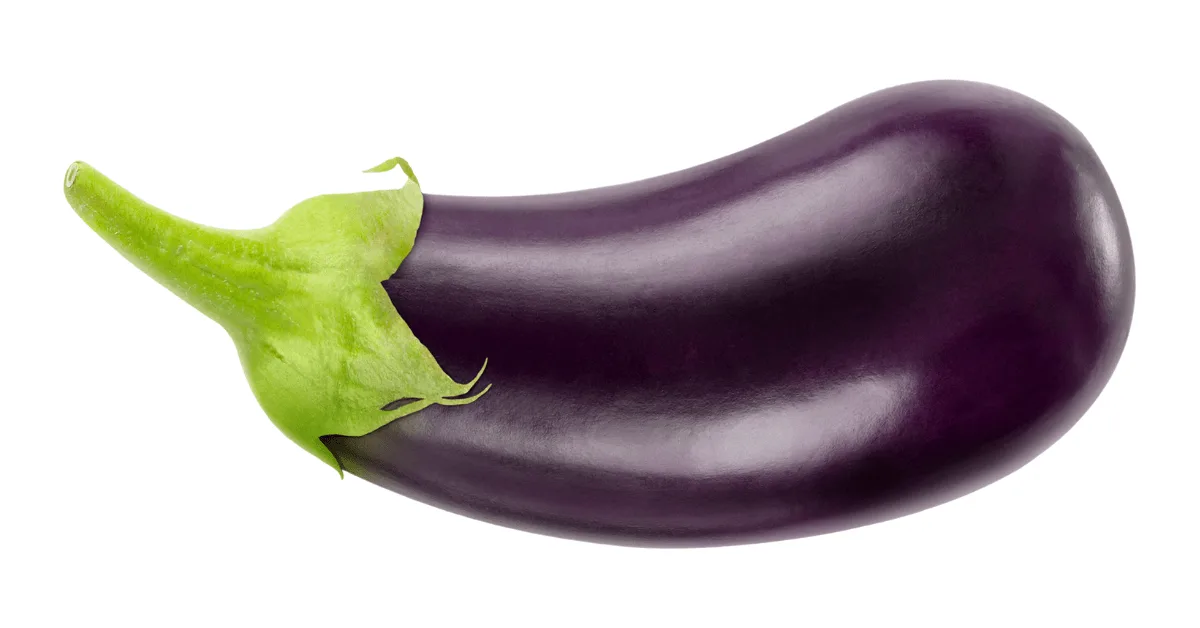
Eggplants, also called aubergines or brinjals, belong to the Solanaceae family of vegetables. These vegetables are high in fiber and contain potassium and vitamins B and K.
Eggplants can be inflammatory and should not be given to German Shepherds suffering from arthritis or kidney disease.
Solanaceae is also known as the nightshade family of vegetables and should be treated carefully. They contain a chemical called solanine, which is toxic in high doses. Never feed your German Shepherd eggplant leaves as these contain higher levels of solanine.
Some Germans Shepherds can be allergic to eggplants, and you should speak to your veterinarian before introducing eggplant into your dog’s diet. If you introduce them, start slowly and watch for signs of an allergy: nausea, vomiting, and diarrhea.
Eggplant should be served cooked (grilled, roasted, or baked) as the raw plant is difficult to digest and does not taste very nice. However, it may be best to say that you should not actively feed your dog eggplant, but if they accidentally get a piece, it shouldn’t be a problem, but watch them to make sure they are not allergic to it.
Fennel
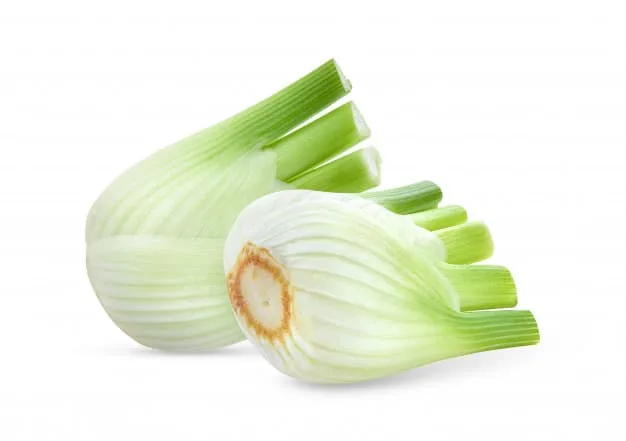
Fennel belongs to the Umbelliferae family of vegetables. It contains calcium, iron, potassium, and vitamins A and C and helps to boost your German Shepherd’s immune system, eyesight, and bones. Additionally, it can help with dog-breath, indigestion, and flatulence.
You should only feed fennel to your German Shepherd in small quantities. It can be fed raw.
Green Beans
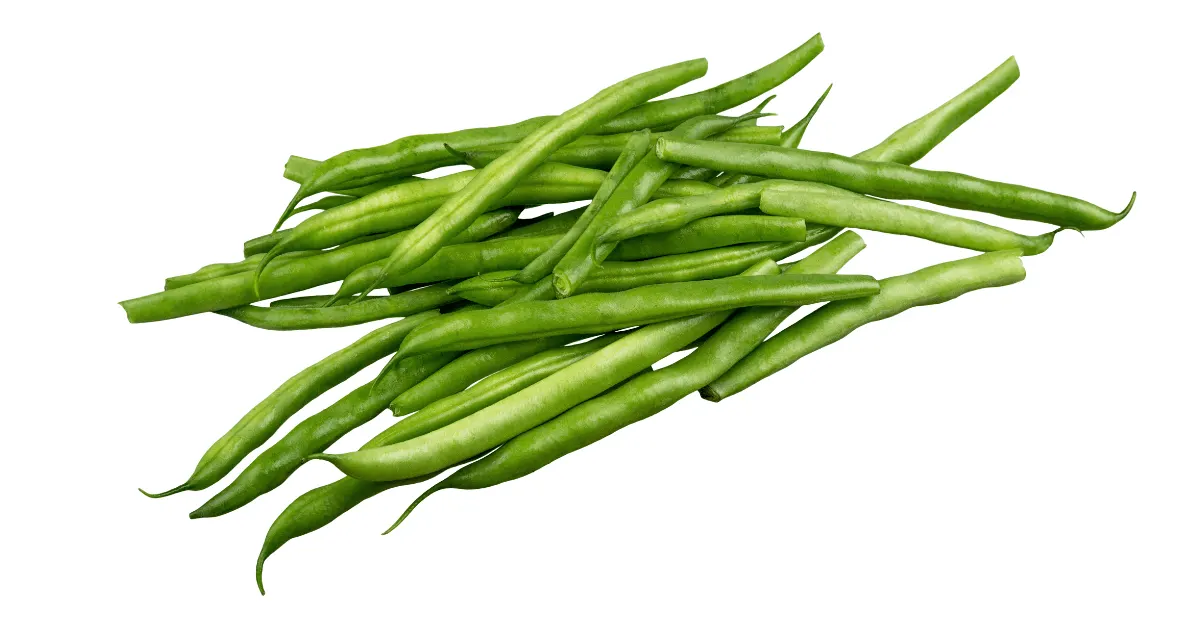
Green beans belong to the Fabaceae family of vegetables. Green beans are one of the most common vegetables given to dogs. They contain calcium, iron, protein, and vitamins A, B6, C, and K.
Their low calory count makes them ideal foods in a weight-loss diet, but you need to consult a veterinarian before substituting a portion of your German Shepherd’s food for green beans. They can rather be thought of as healthy alternatives to dog treats.
Green beans can be given to your German Shepherd raw, although they should be chopped up small to avoid choking. Steamed green beans are good as well, as long as they are cooked without fats or seasoning. You can even give your German Shepherd canned green beans, but you need to avoid the ones that contain salt.
Lettuce
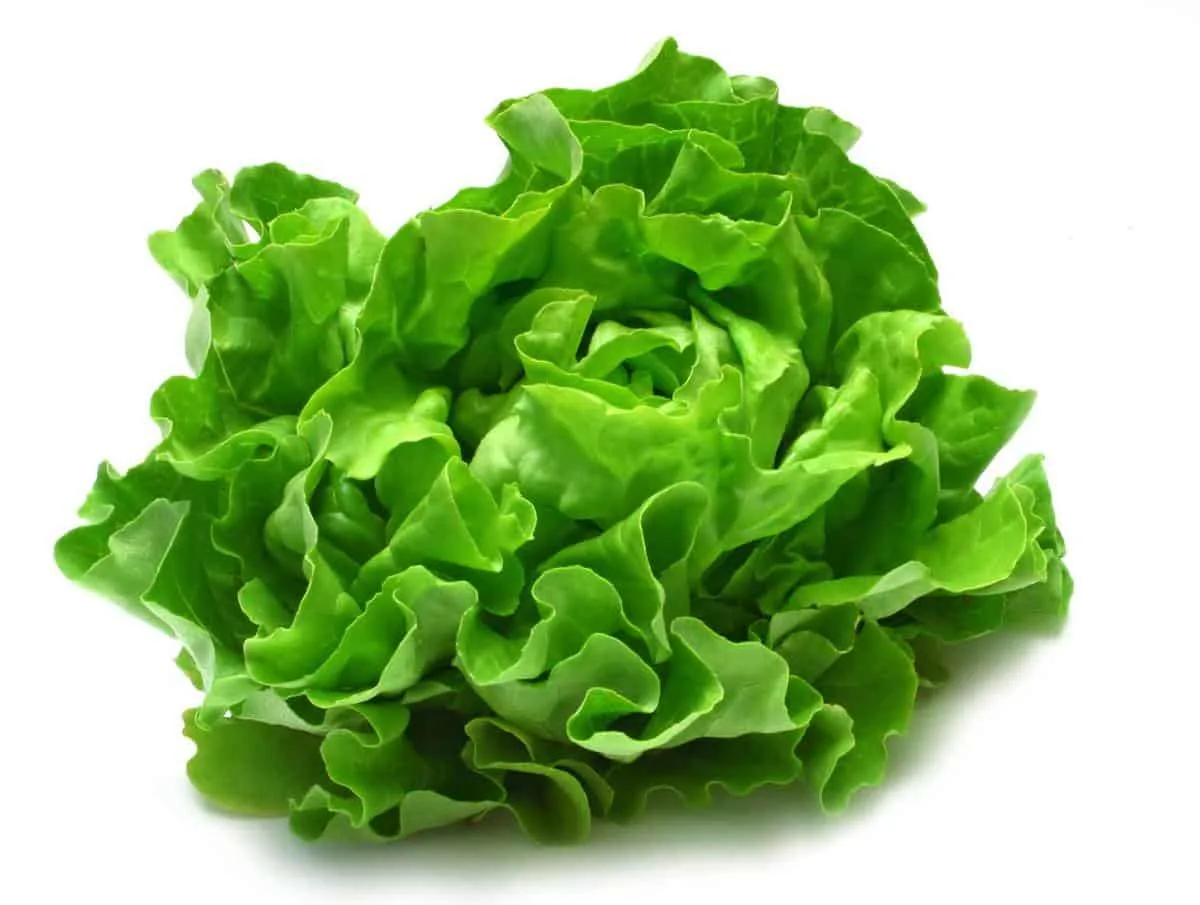
Lettuce belongs to the Asteraceae family of vegetables. Lettuce is an interesting vegetable in that it is 90% water and has very little nutritional value, yet it is widely used. It is not dangerous for your German Shepherd, but it also not beneficial. It can be used as a source of low-calory fiber or treats.
Don’t feed it in large quantities because it can upset the balance of your German Shepherd’s diet. Cut up the leaves into smaller pieces to make digestion easier. And make sure you wash the leaves thoroughly to remove any dirt or harmful chemicals that may have been used on the growing lettuce.
Okra
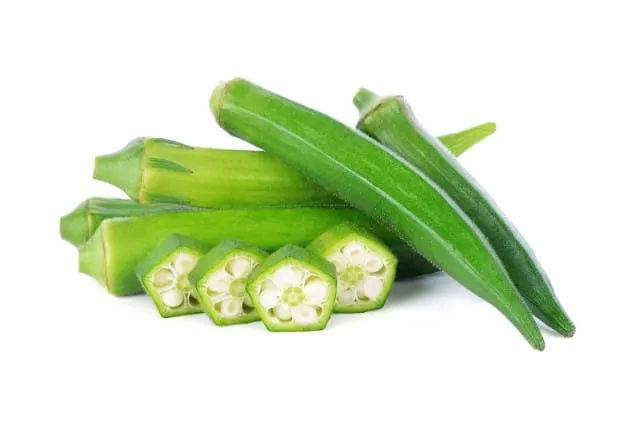
Okra belongs to the Malvaceae family of vegetables. It contains calcium, folic acid, magnesium, potassium, and vitamins B and C, which support your German Shepherd’s immune system, nerves, bones, muscles, and metabolism.
Okra is considered a cancer prevention food, not guaranteeing prevention, but supporting it. Another significant benefit of okra is its regulation of blood sugar levels. This means that you can use okra in the treatment of German Shepherds with diabetes (under the guidance of a veterinarian).
You should not feed your German Shepherd okra on a daily basis, and you should only feed small amounts at a time. Too much okra can upset the digestive tract. You can serve it raw or cooked (no seasonings and not fried).
Parsnips
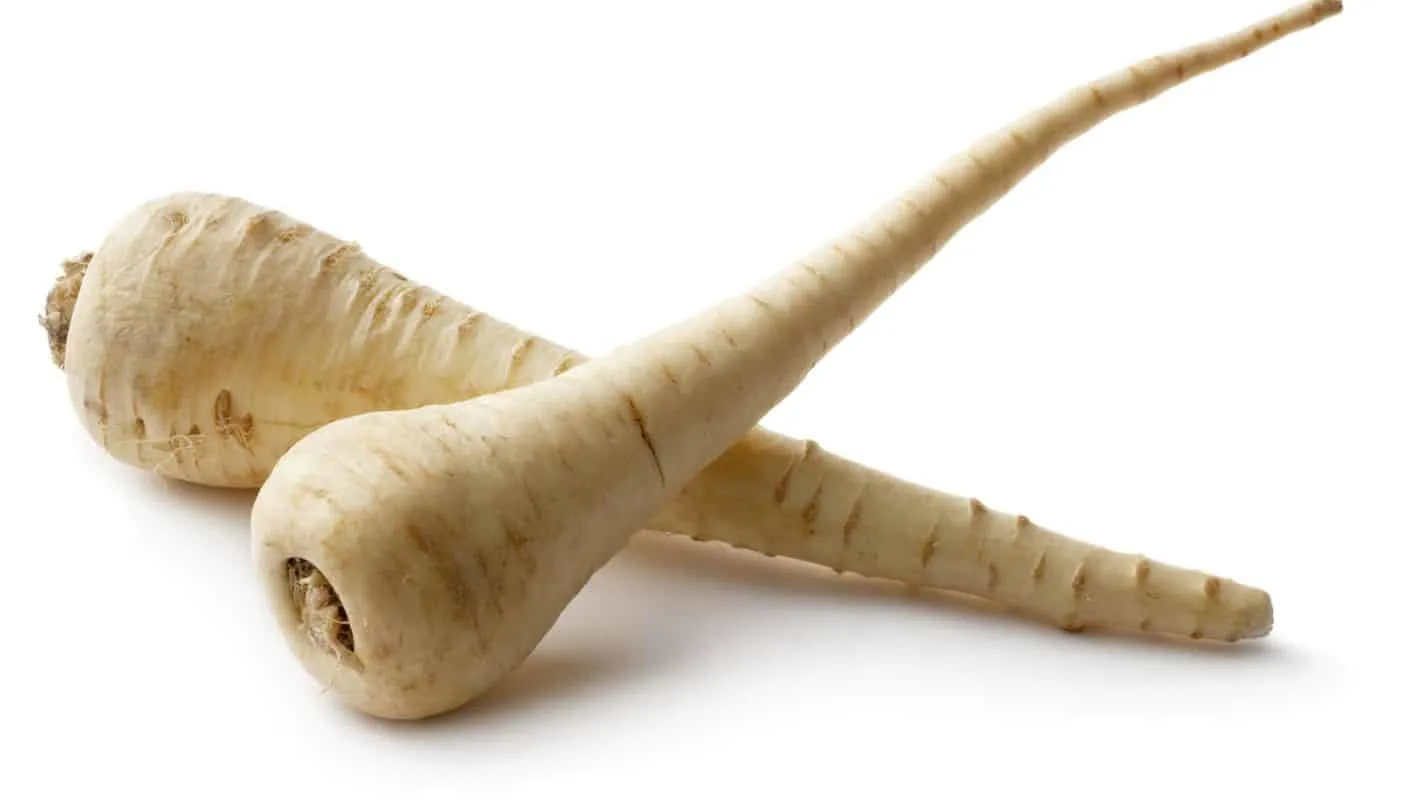
Parsnips belong to the Umbelliferae family of vegetables. They contain folic acid, potassium, and vitamins B6 and C, supporting the health of your German Shepherd’s metabolism, nervous system, and renal system. Their positive effects on the renal system make them a good addition to the diet of German Shepherds who suffer from kidney disease.
Parsnips can be served raw or cooked. If you give your German Shepherd raw parsnips, chop them up into small pieces, or shred them onto their food. But feed parsnips to your German Shepherd in moderation as they have a higher sugar content; you may also want to leave them out if your German Shepherd struggles with excess weight.
Peas
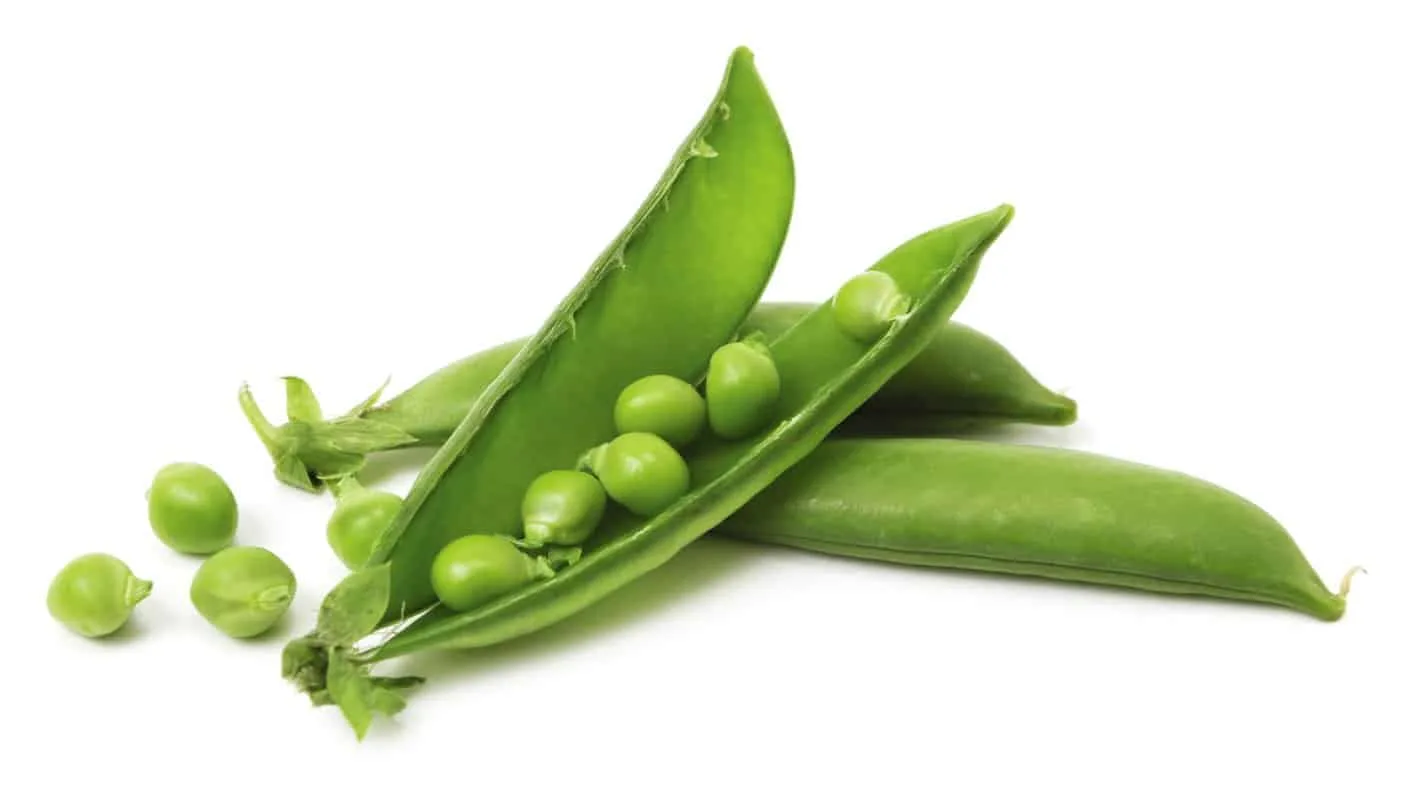
Peas belong to the Fabaceae family of vegetables, and they come in many varieties. They are good sources of protein, fiber, and antioxidants. They are packed with vitamins A, B, and K and contain minerals such as iron, magnesium, potassium, and zinc. The antioxidants contained in peas promote healthy eyes, skin, and hearts in German Shepherds.
Peas contain substances called purines, which produce uric acid. Uric acid is filtered through your dog’s kidneys, and too much can cause kidney disease and kidney stones. So, if your German Shepherd has a problem with their kidney or any other part of the renal system, don’t feed them peas.
Raw or frozen peas are good; you should avoid canned peas because of the preservatives and sodium content. If you can eat the pea pod, then your German Shepherd probably can as well; the risk is that they can choke on the pods.
Potatoes
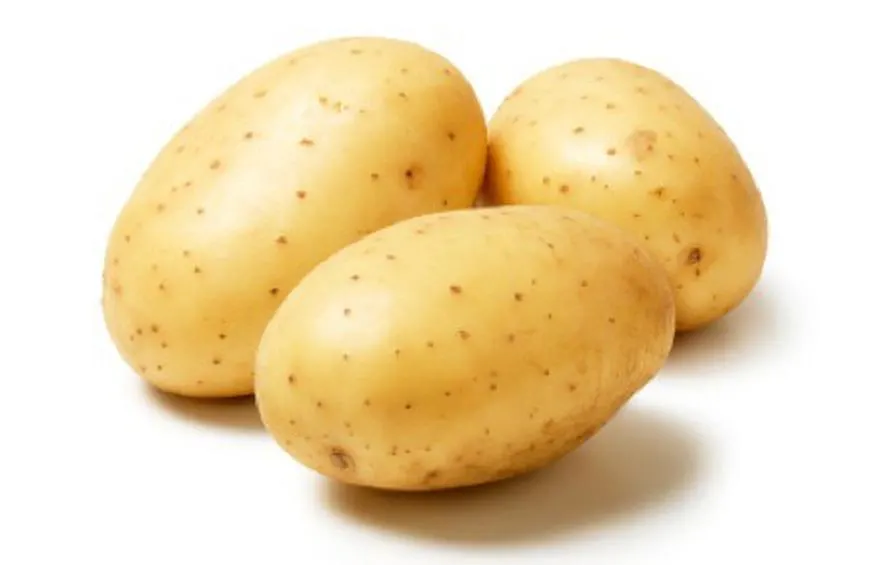
Potatoes belong to the Solanaceae family of vegetables (the nightshade family). Potatoes contain vitamins (like B6 and C) and minerals (like iron, magnesium, and potassium) that are beneficial to your German Shepherd, but there are better sources of these in other vegetables. The main reason you would feed your German Shepherd potatoes specifically would be because of their high carbohydrate content.
Because they belong to the nightshade family and contain the toxic compound solanine, you have to be very careful when feeding potatoes to your German Shepherd.
Potatoes promote weight gain and should not be fed to overweight German Shepherds. The starchiness can also promote bloating in sensitive dogs.
Never feed your god raw potatoes or green potatoes. Cook them without the skin and with no added fats or seasonings. Cooking potatoes reduces the solanine levels. But, as with eggplants, it may be best to say that you should not actively feed your dog potatoes, but if they accidentally get a piece of cooked potato, it shouldn’t be a problem.
Pumpkin
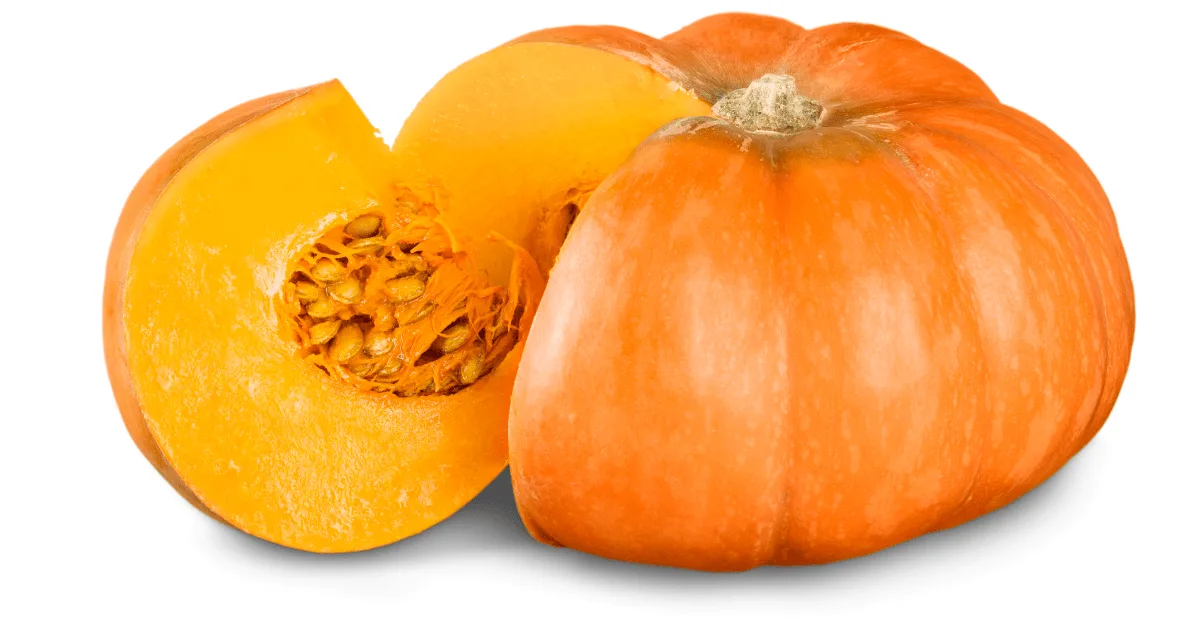
Pumpkin belongs to the Cucurbitaceae family and is technically a fruit. Pumpkins are great vegetables to feed your German Shepherd. They are a source of antioxidants, fiber, and vitamin A. They promote cardiac and intestinal health. Like butternut squash, pumpkin can help to treat diarrhea, constipation, and other gastric complaints in your German Shepherd.
Raw or cooked is fine to feed to your German Shepherd, although raw pumpkin will be harder to digest and should be cut into small pieces. The seeds are completely safe for German Shepherds and even contain their own nutrients that will benefit your canine friend.
Radicchio
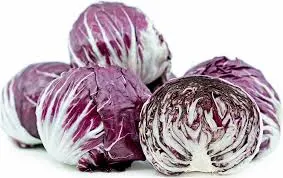
Radicchio belongs to the Asteraceae family of vegetables. It is a low-fat source of folate and vitamin K, supporting the circulatory system and benefitting pregnant dogs.
These vegetables are good for your German Shepherd in small quantities (it can cause gas and diarrhea if given in large quantities), and you can serve it raw or cooked (boiled, steamed, or roasted). As with other vegetables, never add any fats, sugars, or seasoning to radicchio you are cooking for your German Shepherd.
Radish
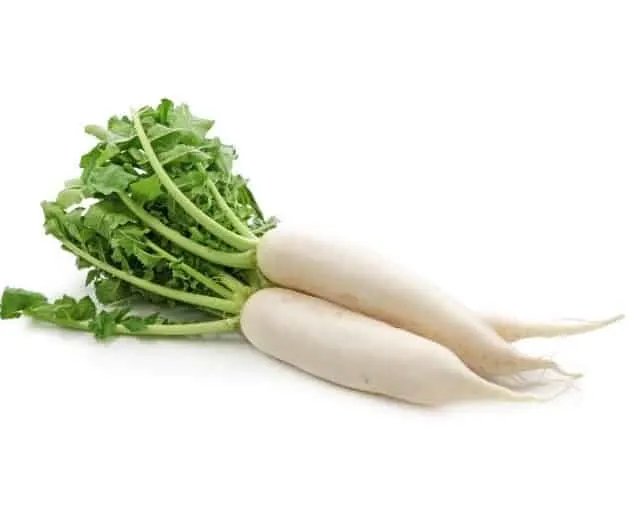
Radishes belong to the Brassicaceae family of vegetables. They contain fiber, potassium, and vitamin C, thereby benefiting your German Shepherd’s immune and digestive systems, as well as providing them with energy.
They can be given to your German Shepherd raw, and like carrots, their crunch provides enjoyment and assists in dental hygiene. Only give in small quantities; radishes have a strong taste, and their high-fiber nature can cause excess gas and diarrhea.
You might find that your German Shepherd has no interest in this mustard-tasting vegetable. As with humans, not every dog will find the taste enjoyable.
Rutabaga
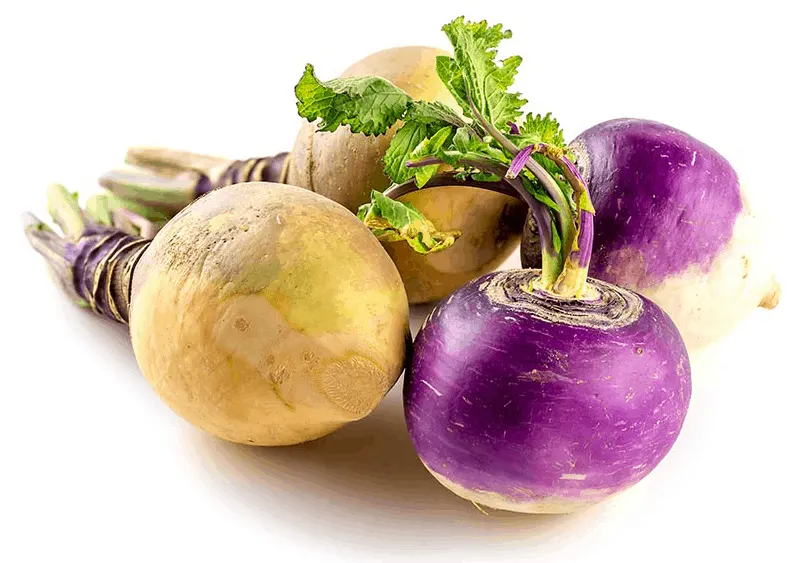
Rutabaga belongs to the Brassicaceae family of vegetables. Rutabagas are a hybrid of turnips and cabbage, and they are good sources of calcium, folate, potassium, and vitamins A and C. They are beneficial in fighting diseases and contain important antioxidants.
You can cut rutabagas up into small pieces to feed raw to your German Shepherd, but this can be difficult to digest, so it is better to cook them.
Spinach
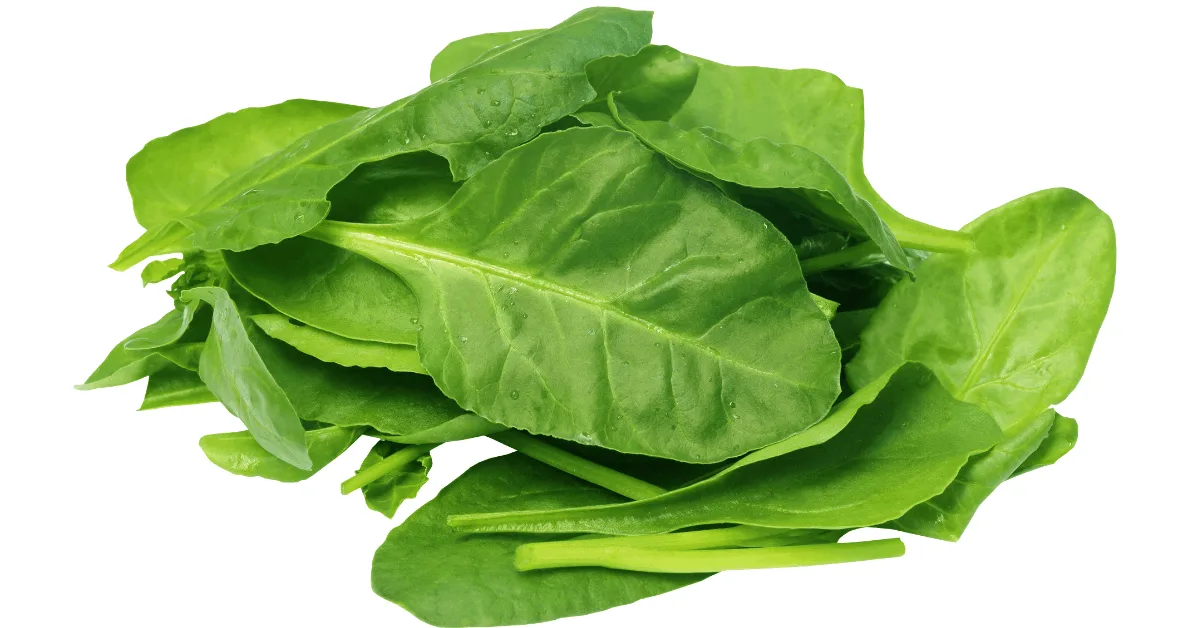
Spinach belongs to the Amaranthaceae family of vegetables. This leafy green contains antioxidants, beta-carotene (involved in the production of vitamin A), fiber, iron, and vitamins A, B, C, and K.
Spinach can support the health of your German Shepherd’s circulatory system, eyesight, bones, muscles, and digestive tract.
Spinach contains high levels of oxalic acid. This chemical inhibits calcium absorption and can lead to kidney disease. Your German Shepherd will probably have to ingest a large quantity of spinach for its kidneys to be damaged, but you need to be careful.
Consult a veterinarian before feeding spinach to your German Shepherd and avoid feeding it to them if they have existing problems with their kidneys.
You must cut the spinach up before feeding it to your German Shepherd. You can feed it raw, although it is harder for your dog to digest in this state. You should rather try steaming it; boiling it will remove all the nutrients. Never cook it with fats or seasoning. You should only feed your German Shepherd infrequent and small amounts of spinach.
Sweet Potato
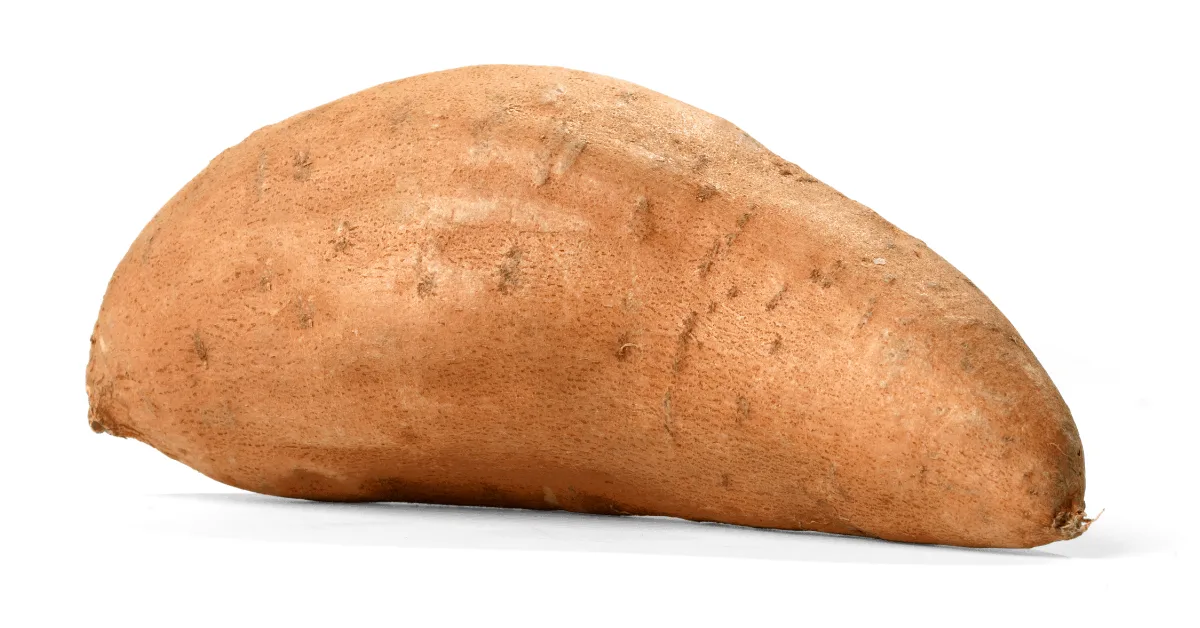
Sweet potatoes belong to the Convolvulaceae family of vegetables. Sweet potatoes contain antioxidants, beta carotene, calcium, copper, folate, iron, potassium, thiamine, and vitamins A, B6, C, and E. They are also a good source of carbohydrates.
Sweet potatoes are great for boosting the immune system, digestion, and overall health of your German Shepherd. They are also a healthier alternative to regular potatoes.
If your dog suffers from obesity, diabetes, or pancreatitis, you may want to avoid this vegetable as the starchiness of sweet potatoes is a source of sugar.
You will need to remove the skin of sweet potatoes and cook them (baked or mashed) before feeding them to your German Shepherd. Raw sweet potato is difficult for German Shepherds to eat and can cause intestinal blockages. Sweet potato can be a part of your German Shepherd’s regular diet, but you should moderate the amount.
Turnips
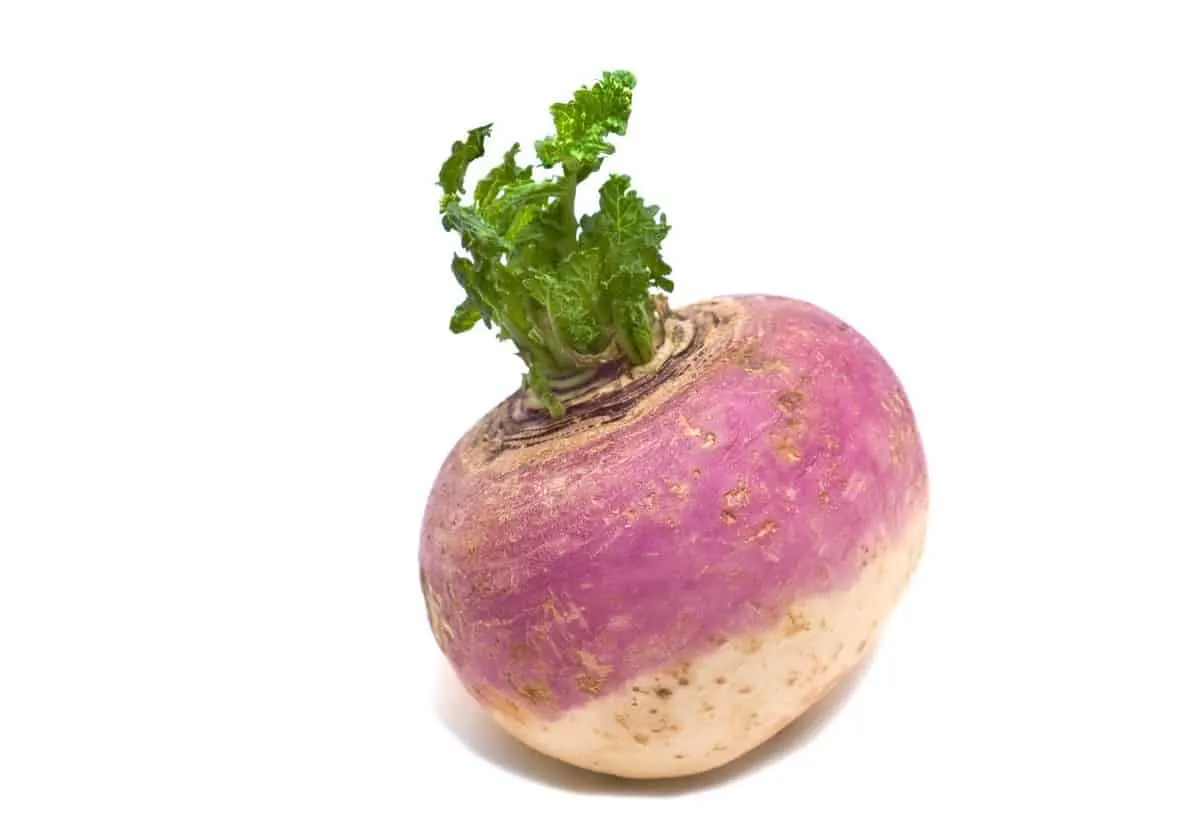
Turnips belong to the Brassicaceae family of vegetables. They are good sources of calcium, folate, magnesium, potassium, and vitamins A, B6, and C. As with rutabagas, turnips are beneficial in fighting diseases and contain important antioxidants.
Turnips are beneficial to your German Shepherd’s metabolism and nervous system. They also stimulate proper kidney function and can be used in the treatment of kidney disease (under the guidance of a veterinarian).
Turnips can suppress thyroid function, so if your German Shepherd has problems with their thyroid, avoid giving them turnips.
You can cut turnips up into small pieces to feed raw to your German Shepherd, but this can be difficult to digest, so it is better to cook them.
Zucchini
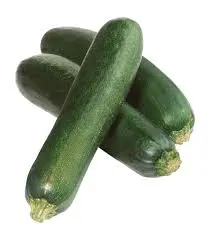
Zucchini belongs to the Cucurbitaceae family, and so it is technically a fruit. Some veterinarians consider it one of the best vegetables you can feed your dogs. Zucchini is packed with fiber, vitamins, and minerals, and its low calory count means it won’t be a problem for German Shepherds struggling with excess weight.
Zucchini is a good supporter of the eyes, muscles, bones, and immune system. It makes an excellent low-calory alternative treat for your German Shepherd. However, whole zucchinis can be a choking hazard, and too much can cause diarrhea.
You can feed your German Shepherd raw zucchini, but first, chop it up into small pieces. If your German Shepherd is older and has difficulty chewing, you can steam it to make it softer. Do not feed your German Shepherd zucchini that has been cooked with fats and seasoning.
7 Vegetables German Shepherds Should Not Eat
Alliums
Alliums include chives, garlic, leeks, onions, and shallots. They are called alliums because they make up the Alliaceae family of vegetables.
Alliums contain a compound called N-propyl disulfide, which is extremely toxic to dogs. N-propyl disulfide or thiosulfate causes a German Shepherd’s red blood cells to break down, resulting in hemolytic anemia.
Symptoms of allium poisoning include lethargy, weakness, decreased appetite, pale gums, fainting, red-colored urine, vomiting, elevated heart rate, and excessive panting. You will need to seek immediate veterinary help for your German Shepherd if they are suffering from allium poisoning.
All parts of allium plants and all forms (raw, powdered, cooked, etc.) are dangerous for your German Shepherd. Never season your dog’s food with these vegetables or powders, and always check that they are not an ingredient in any foods you are going to feed to your German Shepherd.
Avocado
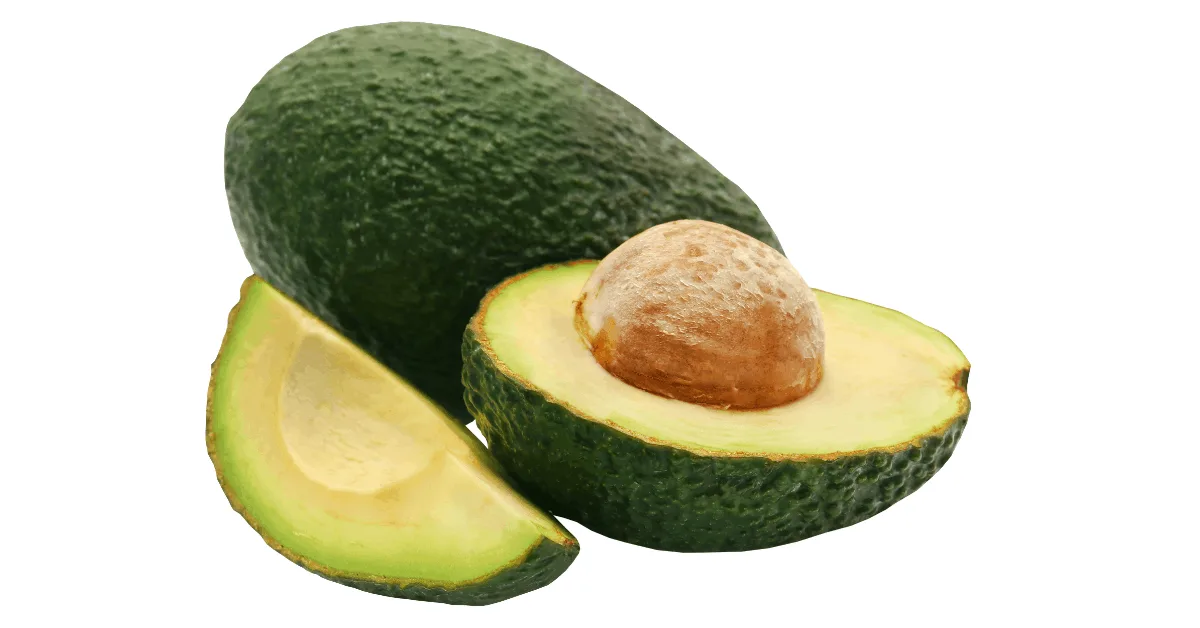
Avocados are technically fruits, but as they are used as vegetables, we will discuss their potential toxic effects.
Avocados contain a chemical called persin. Persin is mainly found in the leaves, skin, and pit of the avocado, but there is still a small amount in the fleshy part. Persin toxicity is characterized by vomiting, diarrhea, and damage to the myocardium. Although the exact dosage is not known, persin can be fatal to German Shepherds.
Avocados have a high fat content and can cause weight gain, intestinal problems, and pancreatitis. The pits are also definite choking hazards.
Chili Peppers (And Jalapenos)
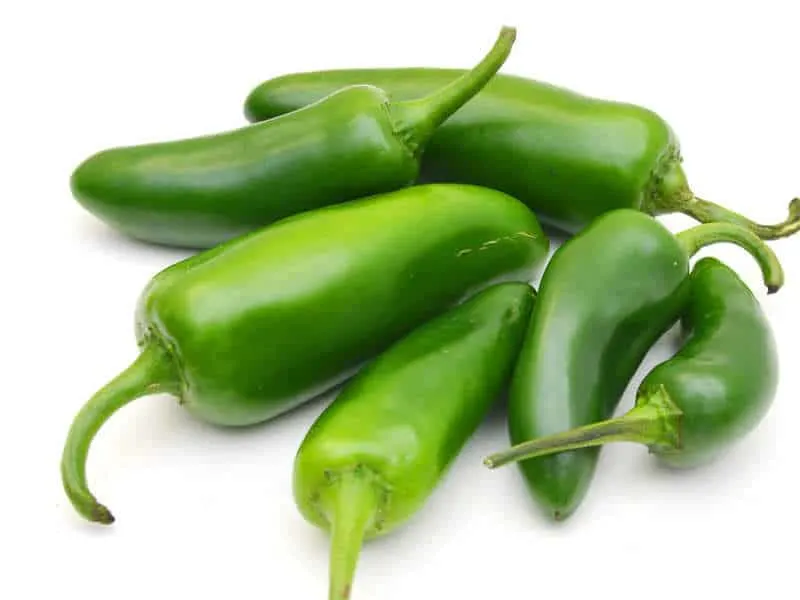
Chili peppers and jalapenos belong to the Solanaceae (nightshade) family of vegetables. Unlike other members of this family of vegetables, careful introduction and moderation will not make chili peppers and jalapenos an option for your German Shepherd. This is because of the capsaicin.
Capsaicin gives these vegetables their spiciness, and while pleasant to some people, spicy foods are not good for dogs. Ingestion of chili peppers and jalapenos by your German Shepherd can cause pain, indigestion, nausea, and vomiting.
Kale
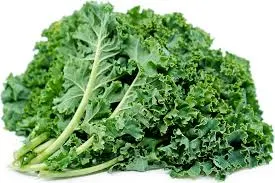
Kale belongs to the Brassicaceae family of vegetables. Even though other vegetables in this family, such as broccoli, Brussel sprouts, and cauliflower, are safe for German Shepherds to eat (in small quantities), you should avoid feeding them kale.
Not only does it contain the intestinal irritant isothiocyanate, but kale also contains calcium oxalate, which can damage kidneys and promote the growth of bladder stones. Regular kale ingestion by German Shepherds can interfere with the function of the dog’s thyroid.
Rhubarb leaves
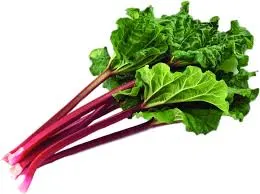
Rhubarb belongs to the Polygonaceae family of vegetables. Technically the rhubarb stalks are fine for your German Shepherd to eat in small quantities if they are chopped up, but the leaves are toxic.
Rhubarb leaves contain oxalic acid, which causes drooling, diarrhea, lethargy, vomiting, and tremors.
Tomatoes
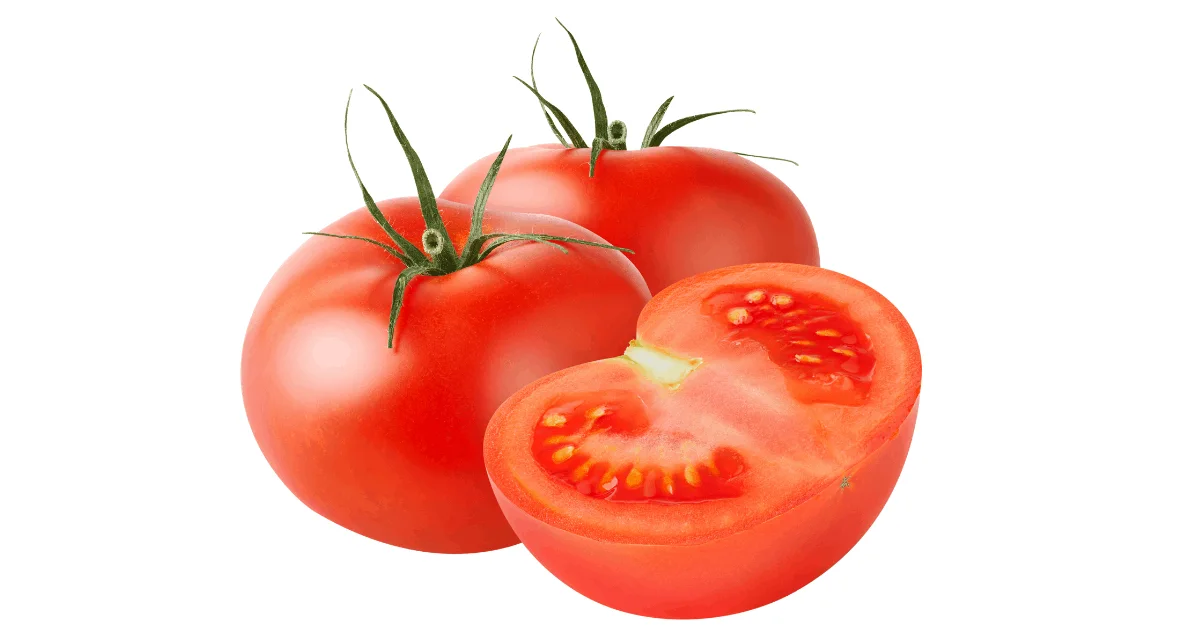
Tomatoes belong to the Solanaceae family of vegetables. Completely ripe, red tomatoes are not toxic to German Shepherds in small amounts, but green tomatoes and any other part of the tomato plant is toxic. The toxicity is due to the presence of solanine, which can cause gastrointestinal distress, tremors, seizures, and cardiac effects.
Bear this toxicity in mind if you are growing tomatoes in your garden.
Watercress
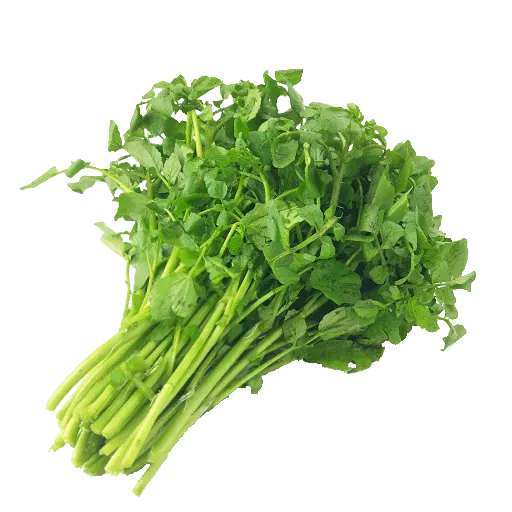
Watercress belongs to the Brassicaceae family of vegetables. Excessive consumption by German Shepherds can cause thyroid and kidney damage. Even in smaller quantities, watercress can cause nausea, vomiting, and diarrhea.
Watercress grows in the wild, so make sure you know what it looks like before taking your German Shepherd on a country walk.
Final Thoughts
German Shepherds are omnivores, so their balanced diet includes vegetables. Whether you are looking to provide your dog with balanced, home-cooked meals, or you simply want to give them a healthy snack, it is important to know which vegetables are safe for your German Shepherd and which vegetables are dangerous.
There are more vegetables that German Shepherds can eat than vegetables they can’t, so it may be easier for you to remember the ones they can’t eat (avocados, chilies, chives, garlic, kale, leeks, onions, rhubarb leaves, tomatoes, and watercress).
However, you also need to bear in mind that the quantity, part of the vegetable, and how it is cooked also determine how good it is for your German Shepherd. Vegetables on the ‘cat eat’ list that belong to the Brassicaceae and Solanaceae should be fed with care and veterinarian guidance.
Even if a vegetable is on the ‘can eat’ list, all German Shepherds are different, and some may be more sensitive to certain foods than others. Some German Shepherds may have allergies that make certain vegetables toxic to them.
It’s always wise to start with a small piece of the vegetable. Watch to make sure that your German Shepherd is not reacting. You can then increase the quantity each time you feed this vegetable to your German Shepherd (but don’t give more than is recommended).
It is worth noting that, even though German Shepherds can eat a wide range of vegetables, they cannot be vegetarian, even if you are. If you do not want to feed your German Shepherd meat, speak to your veterinarian about a high-quality kibble containing all the nutrients they require.
